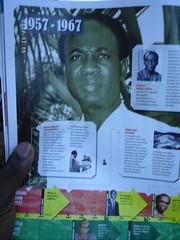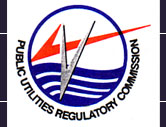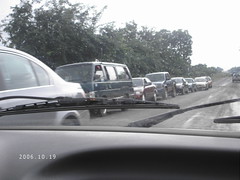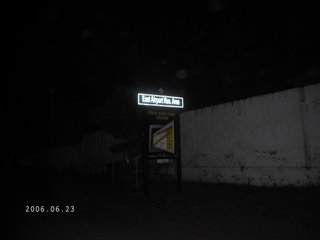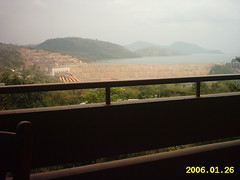I am not going to try to debunk these myths. A quick click on the "SHARE" button, and the story, by Jessica Wolk, 16, of "Glassboro,...considering going to the University of Maryland, Arcadia University or Rowan University" and who is in Ghana with International Healthcare Volunteers, was all over Facebook.
The following are some of the responses:

Emmanuel K Bensah Jr if u consider how much of a "backwater" where she is from is perceived to be, it might make sense why she's making such assumptions. Goes to show, also, that Western 16-yr-olds do not necessarily feel part of the "global village" we all assume we are in!;-)
Tuesday at 12:48pm · ·

Julius Sowu
As is our duty as generous hosts, we should not chide her, she is young and was brought up with the impression that electricity was created by mystical creatures who lived below ground and produced endless supply, that can be wasted.
I say w...e are lucky to have an opportunity to show true reality to such as she, seeing as her elders do not have a clue she maybe will grow up to do the right things.See MoreTuesday at 12:58pm · ·

Emmanuel K Bensah Jr I guess you made a valid point, Julius! 16 is STILL rather young!
Tuesday at 1:01pm · ·

Leanne Rae Halewyck Why don't you invite her over to your place for a goat "beef" barbeque and amaze her with your trick of turning on the lights - *at night*?
Tuesday at 1:06pm · · 1 personYou like this. ·

Katrina Olson I am so tempted to comment on her post that she finally experienced using a toilet while being in Ghana - times in NJ must be tough!
Tuesday at 1:16pm · · 1 personLoading... ·

Leanne Rae Halewyck LOL - so true Katrina! Man, they have it good in Africa: electricity until 2pm AND toilets!
Tuesday at 1:17pm · · 1 personLoading... ·

Julius Sowu
@Emman 16 is just the right age for her to awaken from the sleep that is living in the west, most kids do not have such an amazing opportunity to see reality up close and personal.
Lets just hope she goes beyond pink buildings in Osu, and ...air conditioned imitations of somewhere else, but takes time to opens her eyes.See MoreTuesday at 1:22pm · · 1 personLoading... ·

Chris Howusu Just written like a teenager. Goat as beef? Nonsense. Not in Ghana. Ghanaians prefer goat anyway. Sometimes the difference between the West and developing countries is exagerated. As someone whose MA dissertation was about internet comments of tourists visiting Ghana,this one takes the biscuit.
Tuesday at 1:50pm · · 1 personLoading... ·

Emmanuel K. Dogbevi
When I read the article, my initial reaction was shock. But I then noticed that she is only 16 and probably travelling to Ghana for the first time. It is a pity it appears those bringing her down did not orient her.
She is however, stereoty...pical of most Americans I have met who were arriving in the country for the first time.See MoreTuesday at 2:18pm · ·

Emmanuel K Bensah Jr @Leanne & Katrina: I think you make a good comedy-duo;-D really made my afternoon...literally fell off my chair!;-)) @Julius: here's to her opening her eyes! I almost feel sorry for having launched this blitzkrieg on her African adventure!;-) @Chris: would love to see a website where you have some of the BEST internet comments on Ghana!! Can u manage that? keep the fire burning!
Tuesday at 2:20pm · ·

Bob Palitz
Folks....let's take a moment to put things in perspective. We have a 16 year old, who has probably not traveled outside the US before (note her comment on the size of the plane). She's coming here to do good volunteer work (see her organiza...tion's web site) and she freely admits to not really knowing what she's getting into. She's blogging, which means that initial impressions are thrown out there before they have had time to "mature". By the time she leaves Ghana she will have an appreciation for different cultures and economic circumstances that she has not yet had the chance to experience in her life. So it's cool.
And Americans do not have a monopoly on cultural and geographic ignorance. Care to know how many Ghanaians I have met who think Hawaii is in the Caribbean and were unaware it became one of the United States over 50 years ago? ;-)See MoreTuesday at 2:38pm · · 2 peopleLoading... ·

Chris Howusu Well said@ Bob. She would have received more flak but for her age. I wish her the best during hers stay.
Tuesday at 2:49pm · ·think BOB PALITZ's comments pretty much summed it up, when he posted a comment to her post:
Bob Palitz August 17, 2010 at 7:18AM
Well...as an NJ native who has lived in Ghana for almost 10 years, I can appreciate the culture shock Ms Wolk is experiencing. It doesn't seem as if she has traveled much so far. If she thinks a 767 is huge, wait until she experiences a 777 or 747.
However...as an aspiring journalist, she does need to get on top of the need for research. She apparently is confusing "tarmac" (which is simply pavement) with "jetway" (which is the movable bridge many airports have that allow you to enter and leave a plane door directly into the terminal). Rest assured that when she descended the stairs upon arrival at Kotoka International Airport, she stepped onto tarmac.
In my ten years here, I have never been served goat masquerading as beef. Why would they? Goat's very popular here and they sell it as goat, on the menu and in the markets. They don't taste at all alike.
And while the electricity supply in Ghana has its erratic moments, it doesn't "run out" at 2 pm or at any particular time. In fact, it's better than you will find in most African countries.
Let's hope Ms Wolk can get beyond her shock about differences in creature comforts and describe in a balanced way the experience she's having.
Frankly, despite all these comments--many of which I sympathise with--I do not think we are going to see an end to platitudinous impressions about Ghana--let alone Africa. The proof of the experience clearly will be in the living. But I daresay, if more if us challenged these assumptions about Africa anytime and everywhere it appeared, we might have a better-balanced view of Africa.
Here's to technology, Facebook, and the intelligentsia!;-))










